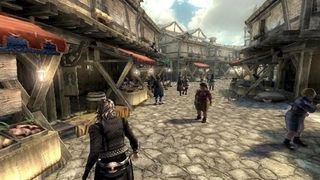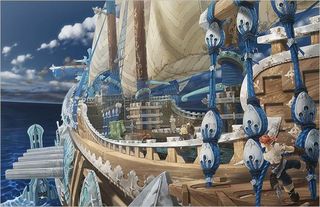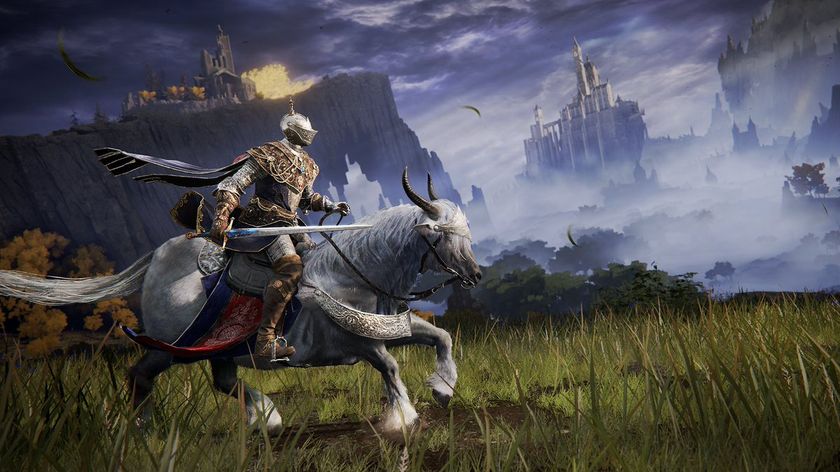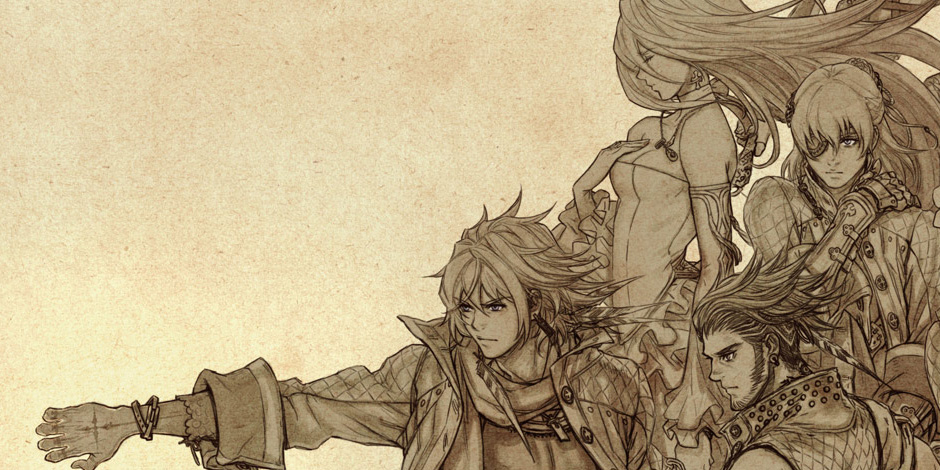12DOVE Verdict
Pros
- +
The gorgeous
- +
Disney-esque catchy score
- +
Deceptively nuanced combat
- +
Subversive story flips JRPG tropes on their head
Cons
- -
Occasional slowdown when combat gets hairy
- -
The inability to fuss over stats
- -
How linear the game can be at times
Why you can trust 12DOVE
On its surface, The Last Story deals in many of the tired-out tropes that define the JRPG genre. And that’s perhaps unsurprising, given that the man who pioneered many of those tropes, Final Fantasy creator Hironobu Sakaguchi, led development on this Wii title. Add in the fact that Final Fantasy composer Nobuo Uematsu scored The Last Story (never mind the echoes of terminality in its title), and comparison to the Final Fantasy brand of RPG is inevitable. However, The Last Story isn’t completely constrained by its roots, and finds a way to take the genre into unexpected territories.
The Last Story is a game about a ragtag band of mercenaries who aspire to become knights. You play as Zael, a particularly enthusiastic member of this group who gains the ability to resurrect the dead. It's a lengthy, legitimately interesting story, where every pivotal character has his or her own foibles and backstories.
Check out this trailer for The Last Story!
It sounds weird and possibly even boring, but fighting is done simply by holding forward on the joystick and ramming into enemies. However, Zael’s newfound power greatly affects combat, as activating it makes all enemies on the battlefield swarm to attack you. So, you'll be able to protect your allies, but it comes at the expense of your own safety. For a single-player action RPG, this is a clever design choice to make the battles much, much more engaging.
An increasing amount of strategy gets infused into battle as you level up and earn more abilities, like unlocking earth-shaking stun attacks or gaining the ability to bark commands to your wingmen. Also, your allies will automatically adapt their fighting styles to how you are performing on the battlefield. If your style is aggressive, they will have your back. If you're retreating, they will take the lead. All of this happens automatically.

Leveling up happens automatically, meaning you get no say in where each character’s skill points are distributed. It’s a deceptively simple design approach, freeing you up to battle while your squad’s skills rise of their own accord. Item management can offer a little more strategy. There’s an option to automatically equip the optimal weapons and equipment for each character, which is a godsend if you're the sort of player who'd rather keep venturing on in the story and spend less time wading in menus. It’s just an option, though, so you can futz about and try different equipment for everyone if you so wish. All this just means there is depth to be mined if you wish to seek it out.
One of the game's biggest drawbacks, though, is the lack exploration. It's a linear game, but one with a lot to do. Sometimes control is wrested away at the strangest times for a cutscene. For example, you're forced to watch when Zael dives to save an ally who almost falls overboard on an abandoned ship. Players then get control back as the pair does a walk-and-talk through the doorway afterwards.

More awkwardness pokes through when you literally can't progress until you spot, from a first-person perspective, whatever it is your party is talking about. Sometimes it makes sense, like spotting a landmass to go ashore to on the boat you commandeer. Other times, less so, like when you're guarding a royal party and you're told, "Look who just walked in!"
Similarly, the action can stall out when there's too much going on during combat. Slowdown and frame-rate issues are never exactly welcomed, and at least once every four or five chapters, guaranteed, it'll pop up enough to throw a wrench into the flow you've worked up. What's strange is that it never seems to be a problem in the arena, where you can go to level up your party as often as you'd like. (And you should pop by often, because whenever you’re in town and feel like racking up more experience and money, it’s an easy way of amassing both.) Things can get rather out of hand there in terms of how many enemies are thrown at you, and the Wii hums along just fine. But occasionally, at the strangest times, like in a nondescript cave, you'll encounter that dreaded molasses-slow frame rate.
The Last Story is by no means a perfect game. However, the good here far outweighs the game’s shortcomings, and, unlike RPGs that are bloated with fetch quests and tiring level-grinding, everything here is absolutely in service of the game’s story. It isn't worth spoiling the story's climax and twists here, but, rest assured: The narrative has as many wrinkles as the combat. The Last Story might not be the last word on anything in the genre, but it is a memorable and special game while it lasts.
More info
| Genre | Role Playing |
| Description | The Last Story is by no means a perfect game. However, the good here far outweighs the games shortcomings, and, unlike RPGs that are bloated with fetch quests and tiring level-grinding, everything here is absolutely in service of the games story. |
| Platform | "Wii" |
| US censor rating | "Teen" |
| UK censor rating | "Rating Pending" |
| Release date | 1 January 1970 (US), 1 January 1970 (UK) |

Nintendo says the Switch 2 "isn't simply an improved Nintendo Switch, we redesigned the system from the ground up," and after 8 years, I'd sure hope so

Japan's "multi-language" Switch 2 costs 20,000 more yen, or $130 more dollars, than the Japanese-only version

Elden Ring is getting a fancy new name on Switch, new weapons and armor, and new horse clothes on all platforms











